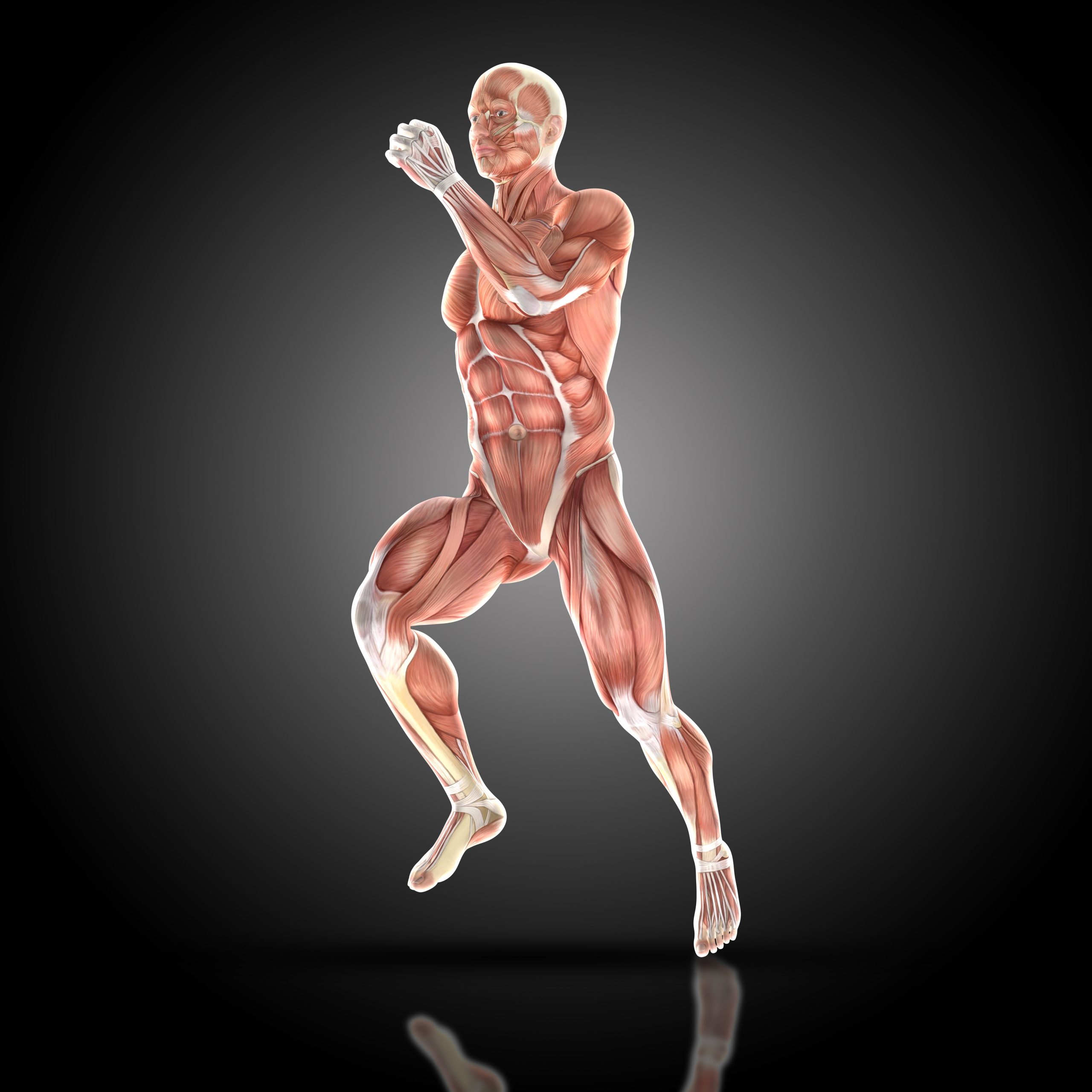

Increasing endurance through exercise enhances both our overall fitness and muscle performance. Researchers at the University of Basel have recently revealed novel insights into these muscle adaptation through experiments on mice.
Endurance training offers significant advantages, improving physical fitness and well-being while prompting substantial muscle remodeling. This results in characteristic training effects: reduced muscle fatigue, increased energy output, and more efficient oxygen utilization.
“The adaptation of muscles to physical activity is a well-acknowledged phenomenon,” says Prof. Christoph Handschin, who has long been researching muscle biology at the Biozentrum of the University of Basel. “We wanted to understand what exactly happens in the muscle during exercise training.” He and his team have now published new insights in Nature Metabolism.
Training state is reflected in genes
In their present research, Handschin’s team analyzed muscle tissue from untrained and trained mice to investigate alterations in gene expression resulting from exercise. “Since endurance training induces substantial muscle remodeling, we assumed that the adaptations would be reflected in gene expression,” says first author Regula Furrer. “However, in contrast to our expectations, the expression of relatively few, about 250 genes, was changed in resting trained compared to resting untrained muscles. Strikingly, about 1,800 to 2,500 genes were regulated after an acute bout of exercise. How many and which genes respond largely depends on the training state.”
Muscles respond differently to physical stress
For untrained muscles, endurance training can activate inflammatory genes, which are prompted by minor injuries and contribute to what we commonly recognize as muscle soreness. “We couldn’t observe this in trained mice; instead, genes that protect the muscle are more active. Thus, trained muscles respond completely different to exercise stress,” explains Furrer. “They are more efficient and resilient – in short, they can cope better with the physical load.”
Epigenetic pattern shapes muscle fitness
The puzzle lies in muscle adaptation and its unique reaction to endurance training, influenced by their training history. Scientists uncovered the solution in epigenetics, where genes are activated or deactivated through chemical markers called epigenetic modifications in the genome. “It was astonishing that the epigenetic pattern between untrained and trained muscles is totally different and that many of these modifications occur in key genes that control the expression of numerous other genes,” emphasizes Furrer. Consequently, exercise initiates a distinct program in trained muscles compared to untrained ones.
This epigenetic data dictates muscle adaptation to training. “Chronic endurance training alters the epigenetic pattern in the muscle, both in the short- and long-term. It seems that trained muscles are primed for prolonged workouts by their epigenetic pattern. They respond much faster and work more efficiently,” summarizes Handschin. “With each training session, muscle endurance increases.”
The researchers unveiled the muscle adaptation process to consistent endurance training in mice. The subsequent phase is to ascertain if these findings can be extrapolated to humans. In competitive sports, biomarkers that mirror training advancements could potentially enhance training efficiency.
More importantly: “Understanding how a healthy muscle works enables us to comprehend what goes wrong in diseases,” says Handschin. This is crucial for unlocking innovative avenues for the treatment of age- or disease-related muscle wasting.
more recommended stories
 Tuberculosis Breakthrough with Experimental Antibiotics
Tuberculosis Breakthrough with Experimental AntibioticsKey Takeaways Experimental antibiotics disrupt a.
 National Healthy Longevity Trial Receives Federal Support
National Healthy Longevity Trial Receives Federal SupportKey Summary Up to $38 million.
 Vascular Health Linked to Early Alzheimer’s Brain Changes
Vascular Health Linked to Early Alzheimer’s Brain ChangesKey Takeaways Brain vascular health is.
 Red Blood Cells Improve Glucose Tolerance Under Hypoxia
Red Blood Cells Improve Glucose Tolerance Under HypoxiaKey Takeaways for Clinicians Chronic hypoxia.
 Nanoplastics in Brain Tissue and Neurological Risk
Nanoplastics in Brain Tissue and Neurological RiskKey Takeaways for HCPs Nanoplastics are.
 AI Predicts Chronic GVHD Risk After Stem Cell Transplant
AI Predicts Chronic GVHD Risk After Stem Cell TransplantKey Takeaways A new AI-driven tool,.
 Red Meat Consumption Linked to Higher Diabetes Odds
Red Meat Consumption Linked to Higher Diabetes OddsKey Takeaways Higher intake of total,.
 Pediatric Crohn’s Disease Microbial Signature Identified
Pediatric Crohn’s Disease Microbial Signature IdentifiedKey Points at a Glance NYU.
 Nanovaccine Design Boosts Immune Attack on HPV Tumors
Nanovaccine Design Boosts Immune Attack on HPV TumorsKey Highlights Reconfiguring peptide orientation significantly.
 High-Fat Diets Cause Damage to Metabolic Health
High-Fat Diets Cause Damage to Metabolic HealthKey Points Takeaways High-fat and ketogenic.

Leave a Comment